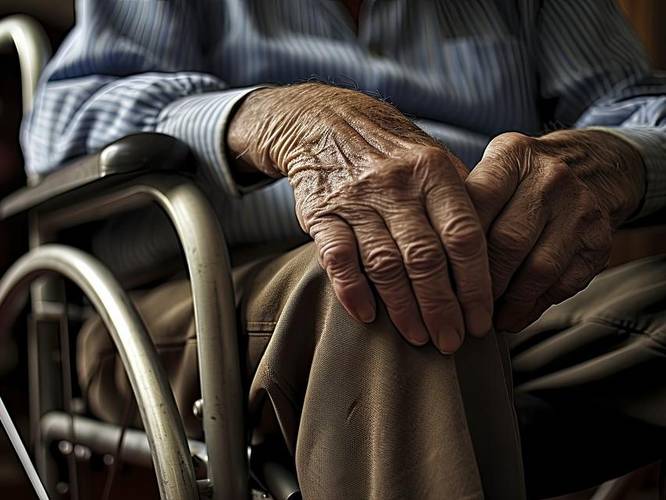The proposal of the Act Amending the Pension and Disability Insurance Act (ZPIZ-20), prepared by the Ministry of Labour, Family, Social Affairs and Equal Opportunities (MDDSZ), does not foresee a change in the definition of disability. Since the Human Rights Ombudsman has been alerting the ministry about this issue for several years, a call for the preparation of legislation that will be in line with international standards of the concept of disability and will eliminate violations of the rights of persons with disabilities stemming from the national legislation discrepant with the Convention on the Rights of Persons with Disabilities was once again addressed to this government body.
***
Upon the adoption of pension and disability legislation (specifically during the preparation of the proposal of the Act Amending the Pension and Disability Insurance Act (ZPIZ-20)), the Human Rights Ombudsman of the Republic of Slovenia (hereafter Ombudsman) found that regardless of year-long findings and appeals from the side of the Ombudsman that the legislation in the field of disability protection must be in line with the Convention on the Rights of Persons with Disabilities (KOPI) and international standards of the concept of disability, changes in the definition of disability have not been foreseen. Hence, the Ombudsman addressed an inquiry to the Ministry of Labour, Family, Social Affairs and Equal Opportunities (MDDSZ) as to why the ZPIZ-20 does not include this crucial amendment, i.e. the definition of disability, which was originally intended. The MDDSZ explained that it was determined during the preparation of the ZPIZ-20 that to make appropriate changes in this field, the close connection between the system of mandatory disability insurance with the system of mandatory health insurance and changes connected to content pertaining to procedures of returning to work must be considered; therefore, they believe it to be prudent to first make changes in the field of mandatory health insurance and then changes to the definition of disability and rights connected to this. Even though changes predicted in the ZPIZ-20 are less extensive than originally planned, they are coordinated with the unions and social partners, stated the MDDSZ in its reply to the Ombudsman.
Once again, the Ombudsman had to express his disappointment and indignation over such an answer. Namely, the Ombudsman has several times publicly called for and demanded changes or actions of those responsible. The medical model of disability, which is established in national regulations, has to be synchronised with the more contemporary, so-called social model of disability and the model of disability founded on human rights; for the latter is being increasingly established as the upgrade of the social model and exceeds both the traditional model and the bare social model of disability derived from the KOPI. The mentioned model stems from the presumption that disability does not originate only from an individual’s personal sphere and their health status, but also from the obstacles one faces when trying to participate in the environment. This is why, in accordance with the social model that is founded on human rights, the definition of disability needs to be changed and synchronised with the KOPI, so that there are no more situations when individuals with the same limitations are provided a different scope of rights and social welfare. The legislation regulating the field of persons with disabilities is discrepant with the KOPI and does not follow it, a fact about which the Ombudsman and other institutions (for example the Advocate of the Principle of Equality) have been warning the MDDSZ for several years.
The Ombudsman expected the predicted changes to the ZPIZ-20 to eliminate the violations to the rights of persons with disabilities and to signify an appropriate step forward in the regulation of the stated field. The MDDSZ’s reference to the prior changes to mandatory health insurance and changes to the procedures of returning to work, which falls under the jurisdiction of the Ministry of Health, is in the Ombudsman’s opinion nothing more than finding excuses and avoiding responsibility for the regulation of disability or social welfare. The MDDSZ has known about the discrepancy for a number of years and has also been promising or announcing change for just as many years.
The Ombudsman insists on the call to the MDDSZ to adopt legislation coherent with the KOPI and international standards of perceiving persons with disabilities as soon as possible and thus eliminate violations to the rights of persons with disabilities. 9.2-4/2025

![[Translate to English:] Starejša ocena na vozičku](/fileadmin/_processed_/f/d/csm_ai-generated-8253520_960_720_926cbbc9ae.jpg)